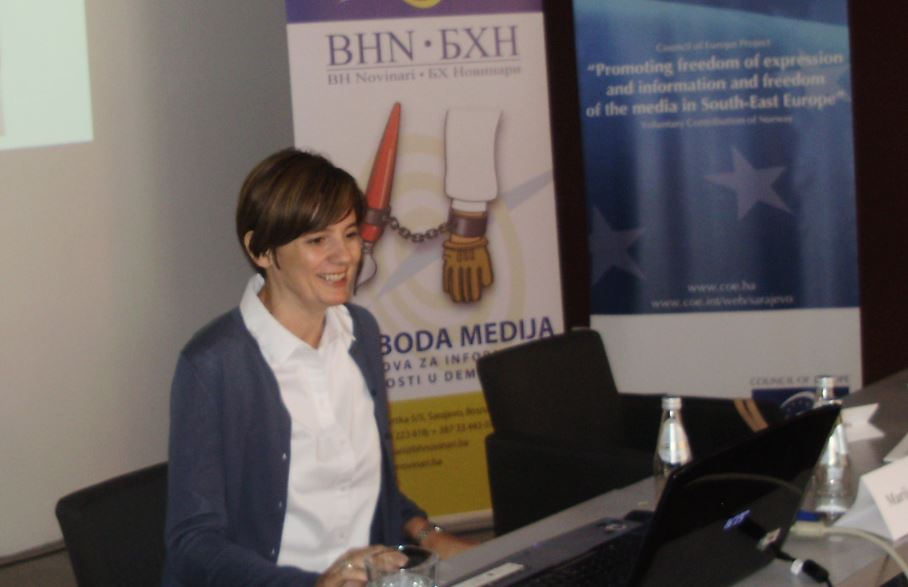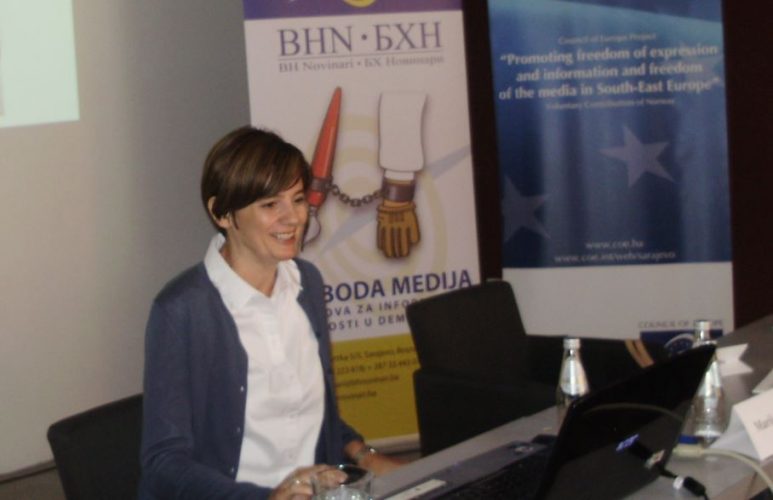Published: 16 September 2014
Country: US, Bosnia and Herzegovina

 Some of the common narratives used to describe women in the U.S. media, especially if they are holding some of the high ranked positions, are “sensible” and “more capable to make compromise”. When talking about the U.S. media and the presidential elections, one of the examples are Hillary Clinton who is presently supported and attacked in the U.S. media not so much for her political positions, but for the set of common biases.
Some of the common narratives used to describe women in the U.S. media, especially if they are holding some of the high ranked positions, are “sensible” and “more capable to make compromise”. When talking about the U.S. media and the presidential elections, one of the examples are Hillary Clinton who is presently supported and attacked in the U.S. media not so much for her political positions, but for the set of common biases.
“Her supporters are reminding us that it is a high time to elect the first women president, but are pundits opposing her presidential nomination because she is ‘cold’ and ‘too emotional’, as well as for her sex and the age”, said Marija Sajkas, Head of Development and Operations of MDI U.S. office at the Media Academy 2014 in Bosnia and Herzegovina. She was one of the expert speakers examining fair and balanced media reporting.
Addressing the audience of editors and media managers from all over Bosnia and Herzegovina, Sajkas spoke about freedom of expression from the U.S. point of view.
“There is a difference between the European media landscape with its set of laws that are regulating freedom of speech, and America where we have the First Amendment”, said Sajkas, adding that in the States even members of Ku Klux Klan are in some cases allowed to have their own parades as long as they do not act on their belief.
“I enjoyed the lecture about American media, diversity and presidential campaigns the most. Here in Bosnia we don’t know a lot about ways American journalists work, and about the First Amendment and the ways it determines the fair and balanced reporting. The training Marija Sajkas gave was full of excellent examples that are very useful to understand our own political campaigns better”, said one of the participants.
The Media Academy organized by Bosnia and Herzegovina Media Association is in its second year. The 5-day workshop featuring Marija Sajkas took place in the last days of August 2014 in Jahorina, and is supported by the Norwegian Government and Irish Republic.

